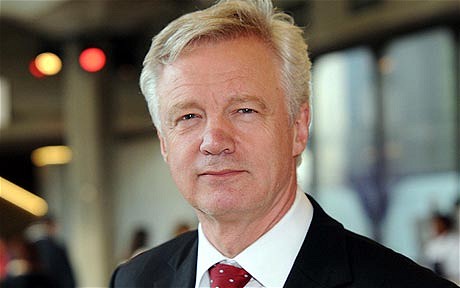Following his claims about the state of Government, I wanted to press David Davis further on comments he had made publically about the intelligence agency, GCHQ.
In our previous article, Davis said that the leaks by Edward Snowden were not an accident, but an inevitability.
I asked Davis if the problem is that GCHQ is free to act as it has, and better regulation would have it under better control? He agreed that there should be some regulation, as the problem is there is a whole series of laws and it is never clear which is being used and some are incredibly open-ended.
“The 1984 Telecommunications Act pretty much gives the Secretary of State, so the Home Secretary, the right to tell telcos to do whatever she wants them to do and they are precluded by criminal law from telling anybody this,” he said.
“It is an incredible case. The truth of the matter is that in most countries, the big telecommunications companies are either owned by the Government or heavily regulated by them, and historically have always complied with Government on bugging, and it was quite a lot done by patriotic people who did it but kept it quiet.”
Davis was in particular referring to section 94, of which paragraph five states “A person shall not disclose, or be required by virtue of any enactment or otherwise to disclose, anything done by virtue of this section if the Secretary of State has notified him that the Secretary of State is of the opinion that disclosure of that thing is against the interests of national security or relations with the Government of a country or territory outside the United Kingdom, or the commercial interests of some other person.”
Davis said that when it was limited to a man in blue overalls connecting crocodile clips to a terminal, it didn’t matter, but as technology has changed and BT has gone into the public domain, the Government needed to have control.
“With the Official Secrets Act of 1994 passed, there are levels of constraint and the authorising signatory is a politician and the theory on it is that they are accountable, who never comment on security matters, so we don’t know what law it is,” he said.
“We know from the Snowden files that the GCHQ regulatory regime is light touch, so I think it is a very poor system and should be under judicial control and I would be happy if it was set up as a separate regime out the control of Government and under a judge.
“There is a thing where they hand it to someone in a different office and broadly speaking, the committee said that works very well. However it is the executive approving itself. I think we would kill off a lot of these problems if we put it under the judge’s control system, who would comment publicly. There are thousands that go on, how can one tiny organisation keep up?”
Davis said that when the Snowden leaks were made public, what struck him was that “having information on innocent people and is a form of madness”, and rather than it being Big Data, it is expensive and a waste of time if you don’t know what you are doing. “You cannot go through it with a fishing net,” he said.
The conversation moved on to the announcement of “war games” between the USA and UK, which Davis said there was a point to
, as Government needs to be involved, but at the same time, he did not see the benefit in telling the opposition your techniques, as it is also dangerous to air the fact that you are practicing such things.
“It just seems to me that the Government is happy to release propaganda masquerading as information and they shout security when we say tell us more,” he said.
Finally I wanted to get his views on one of the successes of the coalition Government, the roll out of the Cyber Security Strategy. He did admit that this was not something he had looked at closely, but he did question how we will ensure the top talent remain in the UK public sector.
He said: “Ross Anderson from University of Cambridge was asked in an evidence session what he thought of the quality of GCHQ staff, as we all walk around with the presumption that they are top class brains but Anderson said ‘the best of my students can work at GCHQ for £25,000 or in California for $250,000, but the real thing is they will not run GCHQ as that will be a civil service general whereas they can run or own their own company in California’.”
Davis admitted that a top rate programmer has “got to be very patriotic to work in the public sector” and would be making a huge sacrifice to give up other opportunities. “So typically circumstance is the state is always a step behind the hacker,” he said.
David Davis MP was talking to Dan Raywood








